Rethinking Retail Access to Private Markets: A Necessary Modernization


The SEC’s Investor Advisory Committee recently raised an issue that has been brewing for years: the outdated rules restricting retail investors from meaningful participation in private markets. At its September 18th meeting, the committee urged the Commission to modernize its approach, recognizing both the risks and the immense opportunities that private markets represent.
As someone who has spent decades navigating both public and private capital formation, I believe this debate strikes at the heart of where our markets are headed. The question is no longer whether private markets are important—they now oversee more than $28 trillion in assets and raised over $600 billion in 2024 alone. The real question is: how do we responsibly expand access so that wealth creation isn’t limited to a narrow slice of high-net-worth individuals?
Moving Beyond Wealth Tests
The current accredited investor framework is built on the assumption that wealth equals sophistication. In today’s world, that is far too simplistic. Many professionals—whether they are CFAs, CPAs, financial planners, or simply self-educated—understand private investments as well as (or better than) wealthy individuals who automatically qualify. If we want a system that is both fair and forward-looking, eligibility must be based on knowledge and competence, not net worth.
The Role of Registered Funds
The committee is right to point to registered investment vehicles—interval funds, tender offer funds, mutual funds, and ETFs—as the most sensible pathway for retail access. These funds already carry structural protections: audited financials, diversification requirements, SEC oversight, and liquidity management. Strengthening these mechanisms—especially around valuation of illiquid assets and clearer disclosure of liquidity risks—would allow investors to participate safely, while giving private markets new avenues of capital.
Guardrails Matter
If direct retail access to private placements expands, regulators must put practical limits in place. Capping investments at 10% of income or net worth makes sense, as does requiring stronger transparency on valuations and conflicts of interest. Done right, this approach can democratize access without opening the door to abuse.
The Balance of Opportunity and Protection
Commissioner Hester Peirce has argued for full access for all investors, pointing to the frustration many feel when private opportunities are reserved for the wealthy. Others, like Duke Law’s Gina-Gail Fletcher, caution that opaque, illiquid, and complex offerings could do real harm to those least able to bear losses. Both perspectives carry weight.
The truth, in my view, is that modernization isn’t optional. Private markets have become too large and too central to wealth creation for regulators to ignore retail investors any longer. But modernization must be paired with protections that ensure these markets are navigable for all—not just insiders.
A Call to Action
The committee has recommended that the SEC issue a request for comment, engaging market participants, policymakers, and the public. That is the right next step. This is an opportunity to create a framework that balances inclusion with responsibility—a framework that recognizes sophistication over wealth, transparency over opacity, and opportunity over exclusion.
The time has come to make private markets work for everyone.
About JPF Venture Group, Inc.
JPF Venture Group, Inc. is an impact-focused investment firm that partners with companies addressing essential human needs through resilient energy, workforce housing, and medical innovation. Guided by the belief that capital should deliver both financial returns and positive social outcomes, the firm invests directly as principals, ensuring true alignment with the businesses it supports. By concentrating its resources and expertise on a select number of ventures, JPF Venture Group helps build organizations with sustainable foundations that strengthen communities, safeguard resources, and improve quality of life.
